Website navigation
In this section
- Imperial Home
- Postgraduate doctoral
- Application process

Choose a course
Integrated PhD

A new model of Doctoral training
Studentships.
Funding for our CDTs and DTPs is provided by Research Councils so eligibility criteria apply for the studentships that they offer. This is outlined on the UK Research and Innovation website . They may also consider self-funding applicants for non-funded projects.
Integrated PhDs provide a new model of postgraduate training. They retain the depth, rigour and focus of a conventional PhD while also providing a broader training experience.
While the specific training routes may vary, they typically consist of a one-year Master's course (MSc or MRes) which leads straight into a three-year PhD.
This new style of doctoral training is available within our Research Council-funded Centres for Doctoral Training (CDTs) and Doctoral Training Partnerships (DTPs).
CDTs and DTPs
Our CDTs and DTPs recruit cohorts of students from a broad spectrum of disciplines, creating vibrant multi-disciplinary communities.
The diversity of students recruited to these centres reflects the breadth of research which they cover.
As well as benefitting from a variety of training opportunities and cohort-building activities, students studying within these centres may also have access to a supervisor and facilities at a partner institution.
Doctoral Training Partnerships (DTPs)
We offer the following DTPs:
- Science and Solutions for a Changing Planet , funded by the Natural Environment Research Council (NERC) and hosted by the Grantham Institute – Climate Change and the Environment.
- Medical Research Council Studentships – Imperial College Medical Research Council Doctoral Training Partnership (DTP) , funded by the Medical Research Council (MRC)
- Photonics , available through several EPSRC-funded Doctoral Training Partnerships (DTPs) in which Photonics research group members are involved.
Imperial is also a partner in London Interdisciplinary Social Science Doctoral Training Partnership (LISS) , funded by the Economic and Social Research Council (ESRC).
Centres for Doctoral Training (CDTs)
Imperial currently hosts the following Centres for Doctoral Training. Explore the centres that interest you to find out more about their training programme and available studentships.
- Advanced Characterisation of Materials
- Artificial Intelligence for Healthcare – UKRI Centre for Doctoral Training
- BioDesign Engineering
- Chemical Biology - Innovation for the Life Sciences
- Modern Statistics and Statistical Machine Learning
- Next Generation Synthesis and Reaction Technology
- Nuclear Energy Futures
Professional Doctorate
Advanced standing

- Integrated Masters with PhD – Explained
- Types of Doctorates
An Integrated Masters with a PhD (iPhD) is a four-year postgraduate level programme that combines a one-year Masters course with a three-year PhD course. They allow students to familiarise themselves with their chosen topic, research methods and academic writing techniques before embarking on their own independent research project. An Integrated Masters with a PhD is particularly popular with international students and students who initially lack specialised knowledge or research skills.
Introduction
An Integrated Masters with PhD, also commonly referred to as either just an Integrated Masters degree or an Integrated PhD, offers a relatively new way to undertake postgraduate training. They maintain the depth and focus of a conventional PhD but offer a more comprehensive doctoral training experience.
Due to their growing popularity, both the number of universities offering these newer forms of PhD and the number of students applying to them has steadily increased.
This page describes what Integrated Masters with PhDs are, who they are for, their advantages and disadvantages, how they differ from conventional PhDs and how they are structured in terms of programme, eligibility and costs. This page is for you if you are considering applying for an integrated course, or simply want to know more about them.
What is an Integrated PhD?
An Integrated PhD is a four-year postgraduate programme. They involve undertaking a one-year Masters degree (MRes or MSc) in your first year, followed by a three-year PhD programme in your second to fourth year. Although the courses run back-to-back, a student can only progress to the second year if they show satisfactory performance in their first year. The one-year Masters and the three-year PhD are considered separately in terms of qualifications; therefore, a student who completes an Integrated PhD will receive both a Masters degree (MRes or MSc) and a PhD as opposed to a single postgraduate qualification.
The aim of an Integrated PhD is to provide a structured approach to doctoral studies, combining advanced PhD research with formal teaching in relevant subjects, research methods and communication skills.
As Integrated PhDs are relatively new compared to more regular doctoral pathways such as stand-alone or MPhil-upgraded PhDs, some professors informally refer to them as ‘New Route PhDs’.
Difference Between Integrated PhD and Regular PhD
The most significant difference between an Integrated PhD and a regular PhD is the addition of the one-year Masters degree at the beginning of the programme. This results in an Integrated PhD typically lasting four years, as opposed to the three years as with regular PhDs.
Integrated PhDs are structured in such a way that they provide students with a broader range of foundational skills than a regular PhD. The first year introduces you to a combination of taught elements, practical experience and advanced research skills. In a regular PhD this mode of teaching is missing as it is assumed you already have this level of knowledge.
The last significant difference between the two types of doctoral programmes is the ‘group’ aspect associated with the Integrated version. Since the Masters programme also includes other students enrolled in Integrated PhDs, you will have a small cohort with whom you will work closely alongside during your studies.
Who are Integrated PhDs suitable for?
Integrated PhDs can be an effective pathway for any student, but they stand out in two situations:
Scenario 1: International Students
The Higher Education system differs across countries , although not by a large amount, enough to where an unfamiliar student may struggle, especially when working independently. An Integrated PhD allows you to adapt to the UK education system by offering a more guided and hands-on approach to your learning and research process before you embark on your three-year research project.
It also has visa benefits. If an international student seeking a Masters degree in the UK already knows they want to follow it up with a PhD, enrolling in an Integrated PhD will save them from having to leave the country and re-apply for a visa after completing their initial postgraduate degree.
Scenario 2: Lack of undergraduate research experience or a relevant Masters degree
An Integrated PhD is useful for students who have academic abilities but lack the necessary background to be considered for a standard-route PhD. This usually occurs under one of three scenarios:
- The applicant is currently an undergraduate student or only holds a Bachelor’s degree,
- The student has a Masters degree, but in a subject only loosely related to the discipline they wish to pursue at doctoral level,
- The student has a relevant Masters degree, but the programme lacked a research focus, leaving the student with underdeveloped research skills.
Advantages and Disadvantages of an Integrated PhD
The advantages of an Integrated PhD are strongly linked to the international and inexperienced students they cater for. They offer students an effective means of gaining more confidence, knowledge and research skills in their field before starting a doctorate, and also provide visa benefits to international students who will be undertaking prior postgraduate study.
Integrated PhDs also enable students the possibility of receiving funding for the Masters phase of their programme, as will be explained in more detail in the ‘Funding Opportunities’ section.
Integrated doctorates have no obvious disadvantages, but are generally not suitable for those who already have a Masters degree or well-developed research skills in their chosen field. For these students, the additional costs and duration of an Integrated PhD can be avoided by opting for a traditional PhD for which they will already be suited for.
Finding a PhD has never been this easy – search for a PhD by keyword, location or academic area of interest.
The programme of study is naturally divided into two parts, the first for your Masters studies and the second for your PhD studies.
Your Masters studies will usually be divided into 180 module credits, half of which will focus on taught components and the other half on research components.
The modules will be tailored to your course, but they will include a variation of:
Taught modules:
- Subject-specific module – You choose one or two modules from a predefined list of topics within your subject area. Your selection should reflect the research area you want your PhD to focus on.
- English and Communication – Academic language and communication skills will be taught to prepare you for the ‘writing-up’ phase of your doctorate. A common misconception is that this module is similar to the English language requirement tests required to apply to a iPhD. In reality, the module will focus on learning how to critically evaluate research sources, write abstracts, literature reviews and conclusions, communicate in lab-based environments and present to audiences.
- Research Techniques – You’ll receive in-depth training to familiarise you with the different research methods and analytical techniques available to modern researchers.
- Research Proposal Development – You’ll work with your intended PhD supervisor to prepare a research proposal for your three-year PhD research project.
Research Modules:
You will carry out one or two small laboratory research projects under supervision for practical experience.

If you complete these modules with satisfactory performance, you will be awarded a Masters degree and will be considered for the following three-year PhD programme.
Each university has its own process for making this consideration, but most invite you to an interview with the supervisor you wish to conduct research with. The interview is used to confirm that you have acquired the specialised knowledge and research skills expected at masters level, and beyond that of someone capable of completing doctoral study.
If your interview goes well, you will be enrolled in your PhD programme. From this point on, your path will be the same as a regular PhD student. During your doctoral phase, you will conduct independent research and laboratory work for two years, followed by a final year of writing up and formally submitting your findings as a thesis. Your thesis, expertise and research competence will be assessed in an oral examination known as a viva. Upon successful completion of your viva, you will be officially awarded a PhD, and your studies will come to an end.
It should be noted that aside from the above, your university may offer optional modules which can equip you with a wide range of transferable skills.
Eligibility
Entry requirements for an integrated masters degree in the UK will vary from university to university, but the typical requirement is an Upper Second Class (2:1) honours Bachelor’s degree in a relevant subject. Equivalent international qualifications are also accepted.
If you are an international student and English is your second language, most universities will require proof of your English language proficiency through an exam certificate. It’s best to check directly with the universities which certificate types they accept, but the most common English language qualification requirement is an IELTS certificate, with a minimum overall score of 6.5 with no less than 6.0 in each category.
The typical annual tuition fee for an Integrated PhD in the UK is £4,712 per academic year for home/EU students (or £2,356 for part-time study) and £19,596 per academic year for international students (or £9,798 for part-time study).
As with all doctoral programmes, there are likely to be additional costs associated with your studies, such as bench fees for lab work, travel costs for collaborating and potential write-up fees for students who need more time to submit their thesis. You can get more information about these additional costs on our cost breakdown page .
Funding Opportunities
You can obtain funding for Integrated PhDs in the same way as for regular PhDs. Funding is usually provided by one of the seven UK Research Councils and research charity organisations such as the Wellcome Trust ; grants, scholarships and funded opportunities can be found directly in our searchable database .
Funding can either be partial (tuition fees only) or full (tuition fees and living costs). Most funding providers also cover the tuition fee for the Masters degree programme due to being integrated with the PhD, however, you should confirm this on a case-by-case basis.
As with regular PhD funding, the fully-funded opportunities are generally limited to home and EU students.
It’s also worth noting that PhD programmes which include an integrated Masters degree are eligible for a Doctoral Loan , even if you already have a postgraduate Masters degree from a previous university. Applications for Doctoral Loans must be made directly to Student Finance England and you must first be registered for a full doctoral degree. Due to application restrictions, you won’t be able to apply for a separate Postgraduate Masters Loan for the integrated Masters phase of your degree.
Availability
You can search for Integrated PhDs in three ways:
- Our Search Page – Search for the term ‘Integrated’ in our comprehensive database of STEM PhDs .
- University Search Pages – Universities advertise their Integrated PhDs on their postgraduate search pages. You can find them by searching the name of the university followed by “ search postgraduate courses ” directly in Google.
- Funding Body Websites – Funding bodies which provide studentships for Integrated PhDs sometimes advertise the positions on their website. A list of the most common funding providers can be found here: PhD Studentships .
Browse PhDs Now
Join thousands of students.
Join thousands of other students and stay up to date with the latest PhD programmes, funding opportunities and advice.
- How to Contact Us
- Library & Collections
- Business School
- Things To Do
/prod01/prodbucket01/media/durham-university/departments-/theology-amp-religion/21213.jpg)
Integrated PhD
The PhD with Integrated Studies is a hybrid degree allowing students to combine a classic PhD with taught preparation roughly equivalent to a taught MA, within a single four-year programme (eight years part-time).
In Year 1, students will be registered as taught postgraduates. Like MA students, they will study five modules: three optional 30-credit modules, and two core modules, Resources, Methods and Interpretation and a short Dissertation.
However, those two core modules will be assessed to a higher threshold than the standard MA. During the Resources, Methods and Interpretation module, students will be required to produce a 2000-word research proposal for their doctoral thesis. The aim is to ensure that by the beginning of year 2 of the programme, students will be ready to embark on independent research.
Years 2 - 4 are a classic British PhD programme, leading to the submission of a 100,000-word thesis.
Students who pass all the elements in year 1 may choose to exit with an MA qualification at that point instead of progressing to the doctoral stage. They may choose whichever specific MA qualification for which they have chosen the relevant optional modules.
In the event that a student fails to pass one or both of the Year 1 core modules at the higher Integrated PhD threshold, but does pass them at MA standard, the student will exit at the end of Year 1 with an MA.
Who is the Integrated PhD for?
The Integrated PhD is aimed at students who are intending to pursue doctoral research in Theology and Religion but who are not yet ready to embark on independent research. Candidates may apply solely on the basis of undergraduate studies or may have some postgraduate experience.
Candidates are of course welcome to apply regardless of their national background. However, the Integrated PhD may appeal particularly to those from academic cultures where taught elements within a PhD programme are the norm.
International students may also find that the immigration formalities involved in applying for a four-year programme will be simpler than those involved in pursuing a one-year MA followed by a separate three-year PhD.
What does it cost?
Durham University's standard fees apply. The fee for year 1 is at the taught postgraduate rate, and the fees for years 2-4 are at the research postgraduate rate (which is lower for home / EU students).
How do I apply?
The admission criteria are similar to those for taught MA programmes: essentially, a good first degree in Theology and Religion or another relevant subject. However, we are also looking for candidates who are likely to flourish in the full research programme through to PhD. Hence we ask for a research proposal. The first year of the degree will provide a structured opportunity to shape it further. Please do get in touch with a potential supervisor, who will be happy to discuss your application with you.
How do the two dissertations relate to one another?
The short, Year 1 dissertation (12000-15000 words in length) and the full doctoral thesis (100000 words in length) are separate pieces of work. It would be normal for students to use the short dissertation to begin exploring their doctoral research topic, and some overlap between the two is to be expected. It would not be appropriate simply to recycle sections of the earlier dissertation into the doctoral thesis, not least because students would be expected to have progressed intellectually during the course of their studies.
How do I know who my research supervisors will be?
Students are encouraged to discuss their projects with prospective supervisors before applying, and it will often be possible to give an informal indication of a likely supervisory team at this stage. However, the final decision about the supervisory team for the doctoral dissertation can only be made once the doctoral research proposal has been submitted half-way through Year 1. In all cases, students will be consulted about the appointment of supervisors.
The supervisor of the short Year 1 dissertation may well also be the lead supervisor of the doctoral thesis, but this will depend on the choice of topics and staff availability.
If you have any further questions about this programme, please email our postgraduate admissions team .
Interdisciplinary training for modern population and health research.
The Health Sciences Integrated PhD Program (HSIP) offers doctoral student training across multiple disciplines within the health sciences, spanning from informatics and program evaluation to implementation science and outcomes research. It builds upon existing master's degree programs in these fields and incorporates new areas of strength in measurement and health behavior. Integration across these programs provides the flexibility for doctoral students to receive rigorous interdisciplinary training in the core content needed for population and health research in the 21st century.
Choose a Track
- Health & Biomedical Informatics
- Health Services & Outcomes Research
- Healthcare Quality & Patient Safety
- Social Sciences & Health
- Biostatistics
Explore the Curriculum

Meet Our Team

Learn more about the people behind our program via the links below. Our faculty members are each assigned to a track, allowing them to provide our doctoral students with more specialized training.
- Meet the current students
- Browse our faculty by track
How to Apply Read the FAQ
Testimonials

Lindsay Zimmerman, PhD, MPH
Managing Principal of Research & Engagement, Upfront Healthcare
Dr. Zimmerman completed her undergraduate studies in Biological Sciences at DePaul University, and later her MPH with an Epidemiology focus at University of Illinois at Chicago. She currently serves as the Managing Principal of Research & Engagement at Upfront Healthcare and leads the Barbara Bartosch Institute for Patient Activation Research. Prior to Northwestern, Lindsay was the Director of Research for the Department of Obstetrics & Gynecology and Division of Family Planning at Cook County Health, Chicago's primary safety-net hospital system.
The doctoral program in Health and Biomedical Informatics, within the Health Sciences Integrated PhD Program, allowed Lindsay to deepen her informatics and data science skillsets, while also allowing her to collaborate with other like-minded students, faculty, and investigators working in the healthcare and public health fields. Lindsay's dissertation focused on understanding the relationship between social determinants of health and cardiovascular health using sequential pattern mining and machine learning techniques. Her dissertation was supported by The Graduate School's Presidential Fellowship and an F31 dissertation grant from the National Heart, Lung, and Blood Institute.
Dissertation Title: Complex Exposures to Social Determinants of Health through Young Adulthood and Associations with Mid-life Cardiovascular Health and Events: The Coronary Artery Risk Development in Young Adults (CARDIA) Study

Cindy Barnard, PhD, MBA, MSJS
Vice President, Quality, Northwestern Memorial HealthCare, Associate Professor, Northwestern University Center for Healthcare Studies, Healthcare Quality and Patient Safety
Dr. Barnard completed her undergraduate studies in Psychology at Bryn Mawr College, her MBA at the Kellogg Graduate School of Management at Northwestern University, and a Master's degree in Jewish Studies at Spertus Institute. She serves as Vice President of Quality for the Northwestern Medicine system of seven hospitals and four medical practice groups. Cindy has served on the faculty of the Northwestern MS program in Healthcare Quality and Patient Safety since its inception. She has held leadership roles in the National Association for Healthcare Quality, the Illinois Hospital Association, and the board of Project Patient Care, and has published in healthcare quality, patient safety, ethics and policy.
The doctoral program in Healthcare Quality and Patient Safety, within the Health Sciences Integrated Program, enabled Cindy to construct an interdisciplinary, cross-cutting curriculum to advance her research skills and to explore emerging areas in healthcare quality. Her qualifying examinations addressed the potential for patient-reported outcomes to play a role in quality evaluation, and innovative approaches to quality improvement in a federally qualified health center.
Dissertation Title: An Innovative RAPPORTS Model of Patient-Centered Quality

Gayle Kricke, PhD, MSW
Clinical Quality Leader, Northwestern Medicine Adjunct Professor, Northwestern University School of Communication Healthcare Quality and Patient Safety
Dr. Kricke completed her undergraduate studies in Human Development and Psychological Services at Northwestern University, and her MSW at the University of Michigan where she was a McGregor Geriatric Social Work Fellow. She serves as a Clinical Quality Leader for the Northwestern Medicine system, supporting projects and initiatives that span the system's seven hospitals and four medical practice groups. Prior to entering the Health Sciences Integrated Program, Gayle worked as a social worker in the Department of Health and Aging at Rush University Medical Center, where she led the development of a nationally-recognized evidence-based transitional care model for complex older adults returning home after an inpatient hospital stay.
The doctoral program in Health Quality and Patient Safety within the Health Sciences Integrated Program enabled Gayle to develop practical skills for improving healthcare quality and patient while also researching methods for advancing the field. Her qualifying examinations addressed the impact of electronic health records on care coordination for complex older adults, and also developed a framework for integrating health services research, operations, and quality improvement activities within the Veterans' Health Administration. Gayle's dissertation on end-of-life care quality for older adults with multiple chronic conditions was supported by an R36 research grant from the Agency for Healthcare Research and Quality.
Dissertation Title: The Association Between Multiple Chronic Conditions, Domains of End-of-Life Care Quality, Care Coordination, and the Perception of End-of-Life Care for Older Adults

Julie Yonek, PhD, MPH
Clinical Services Research Fellow, Department of Psychiatry, University of California, San Francisco, Health Services and Outcomes Research
Dr. Yonek holds a Bachelor of Science in Animal Physiology from the University of California at San Diego and a Master's of Public Health in Epidemiology and Biostatistics from San Diego State University. Prior to starting her doctoral training, Julie worked as a Research Associate for the Center for Healthcare Studies at Northwestern University, where she served as the project director and leader author on a report describing the health status and availability of resources that promote health within Chicago's 77 communities. The doctoral program in Health Services and Outcomes Research within the Health Sciences Integrated Program enabled Julie to advance these research skills and develop content expertise in adolescent mental health services, a topic of great interest to her. For her qualifying examinations, she conducted a systematic review and meta-analysis on the effectiveness of care delivery models focused on integrating mental and physical health services in pediatric primary care settings. She also wrote a mock R01 grant proposal to evaluate the psychometrics of a recently developed measure of integrated care, and to assess the extent of integrated care implementation in pediatric primary care settings. Julie is currently completing an NIMH-funded clinical services research fellowship in the Department of Psychiatry at UCSF. Her research focuses on using mobile health technologies to facilitate integration of mental health services in pediatric primary care, and models to accelerate the implementation of evidence-based prevention and treatment interventions in this setting. After the fellowship she plans to stay in academic research and continue her trajectory to becoming an independent investigator in adolescent mental health services research.
Dissertation Title: The Patient-Centered Medical Home: Impact on Mental Health Treatment and Health Services Use Among Adolescents with Probable Need for Mental Health Treatment

Unable to find any suggestions for your query...
The Essex website uses cookies. By continuing to browse the site you are consenting to their use. Please visit our cookie policy to find out which cookies we use and why. View cookie policy.
Study at both Masters and research level
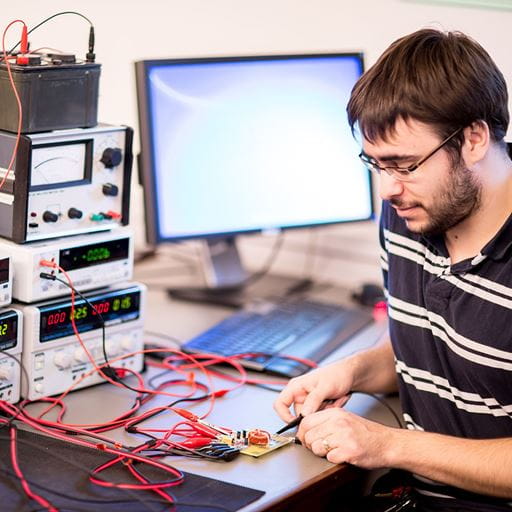
Become a game-changing researcher
We offer a wide range of Integrated PhDs across the social sciences, arts and humanities, and science and health.
- Study at Masters-level and then conduct your own research - be awarded a PhD at the end of the course.
- Gain the skills you need in the first Masters-level year in order to undertake research study.
- Receive guidance, supervision and expert teaching from world-class academics.
What is an Integrated PhD?
A traditional Integrated PhD provides a route into research study if you do not have a Masters degree, or have very little research training. It enables you to spend your first year completing Masters-level training, followed by a full-time PhD. The PhD element of the course will allow you to study your chosen subject in depth, whilst being supervised by one or more members of our academic staff.
What is an Integrated PhD with research and communication skills?
We have recently introduced a brand new type of Integrated PhD which includes additional research and communication skills.
We recognise and understand the importance of continuing professional development for students and have designed these research programmes for students who do not have English as a first language and may have been studying in a different country, or have been out of a traditional academic environment for some time. These tailor-made research degrees seek to give you the best underpinning for your doctoral studies. A core aim is for students to refine their English language skills for scholarly communication, enhance academic skills for postgraduate study, hone higher-level research skills, and master how to study and manage academic work in the UK. These Integrated PhDs do not include a Masters degree in their first year, like other existing Integrated PhDs offered at Essex. You will enrol with the intention of achieving a PhD award, with only a PG Diploma or PG Certificate available as exit awards after the first year. You will take a number of core and compulsory modules in your first year, and the next three years will be conducting your individual research project.
Currently, the research degrees on offer are:
- PhD Accounting and Finance (with research and communication skills)
- PhD Actuarial Science (with research and communication skills)
- PhD Biological Sciences (with research and communication skills)
- PhD Computer Science (with research and communication skills)
- PhD Criminology (with research and communication skills)
- PhD Data Science (with research and communication skills)
- PhD Economics (with research and communications skills)
- PhD Electronic Systems Engineering (with research and communication skills)
- PhD English Language Teaching (with research and communication skills)
- PhD Film Studies (with research and communication skills)
- PhD Government (with research and communication skills)
- PhD Health Studies (with research and communication skills)
- PhD Human Resource Management with Organisation Studies (with research and communication skills)
- PhD Law (with research and communication skills)
- PhD Linguistics (with research and communication skills)
- PhD Literature (with research and communication skills)
- PhD Management (with research and communication skills)
- PhD Mathematics (with research and communication skills)
- PhD Nursing Studies (with research and communication skills)
- PhD Psychology (with research and communication skills)
- PhD Sociology (with research and communication skills )
- PhD Statistics (with research and communication skills)
- PhD Translation Studies (Translation, Interpreting and Subtitling) (with reseach and communication skills)
How is an Integrated PhD different from a standard PhD?
Integrated PhDs are different from standard PhDs in a few ways.
- An Integrated PhD combines both taught study (in your first year) as well as independent research (during the PhD element of the course).
- An Integrated PhD should take longer to complete than a standard PhD (because it includes the Masters-level year).
- Integrated PhDs are designed for students who have not previously completed a Masters course but are particularly interested in pursuing research study.
Which departments offer Integrated PhDs?
The following Departments all offer either traditional Integrated PhDs or our new Integrated PhDs with research and communication skills.
Faculty of Arts and Humanities
- Department of Literature, Film, and Theatre Studies
- Essex Law School
Faculty of Social Sciences
- Department of Economics
- Department of Government
- Department of Language and Linguistics
- Department of Sociology
- Essex Business School
Faculty of Science and Health
- School of Computer Science and Electronic Engineering
- School of Health and Social Care
- School of Life Sciences
- School of Mathematics, Statistics and Actuarial Science
- Department of Psychology
How long does an Integrated PhD take to complete?
An Integrated PhD can take anywhere from 4-8 years to complete, depending on your study mode. The first year can only be studied full-time, which will take you a year to complete. When you begin the PhD element of the course, this will take you a further 3-4 years studying full-time, or 6-7 years studying part-time.
Where will I be based?
All of our Integrated PhDs are taught and supervised from our Colchester Campus, except for three Essex Business School courses, which are based at our Southend Campus. These are:
Integrated PhD Business Administration
Integrated phd management studies, integrated phd entrepreneurship, how will i be assessed.
During your PhD element of the course, you will undertake a large, independent research project and you will be examined by viva. Short for 'viva voce', the viva is an oral examination in which examiners (usually two) pose questions to the candidate about their thesis. The assessment of your Masters-level year will depend on the specific course you are studying, but this is usually a combination of coursework, a dissertation and examinations.
What qualification will I achieve?
Upon successful completion of the full course, you will gain a PhD. If you only complete the first year, you will receive either a Masters qualification, if you study one of the traditional Integrated PhDs, or a PG Diploma or PG Certificate if you study one of the Integrated PhDs with researh and communication skills.
Is there any funding available?
We have a wide range of funding sources available for postgraduate students - from loans and discounts to bursaries and scholarships. Visit our fees and funding page to learn more about the different options that may be applicable to you.
How do I apply?
Check out the detailed information on our postgraduate research applying page, which describes step-by-step what you need to do to apply. This page also covers the application deadlines for our research degrees.
I am an international student. Is there anything extra I need to know?
If you require a student visa to study in the UK, then we will issue a Confirmation of Acceptance for Studies (CAS) to you when you have met the requirements for this. The CAS will allow you to make a single visa application for a student visa which will cover the full duration of the Integrated PhD course.
1 - 20 of 49 results
- Postgraduate
- ↳ Research degrees
- Colchester Campus
- Southend Campus
- EU and International
- Actuarial science
- Biological sciences
- Business and management
- Computer science
- Criminology
- Data analytics
- Engineering
- English language
- English language teaching
- Entrepreneurship
- Film studies
- Finance and banking
- Health and social care
- Human resource management
- Linguistics
- Marine biology
- Mathematics
- Politics and international relations
- Translation and interpreting
- Computer Science and Electronic Engineering (School of)
- Health and Social Care (School of)
- Language and Linguistics
- Life Sciences (School of)
- Literature, Film, and Theatre Studies
- Mathematics, Statistics and Actuarial Science (School of)
- Philosophical, Historical, and Interdisciplinary Studies (School of)
- Sociology and Criminology
Research degrees (49)
Integrated phd accounting.
Study and explore new research and insight into accounting and accountability processes on this integrated Masters and PhD programme
Integrated PhD Accounting and Finance
Join our four-year PhD in Accounting and Finance at Essex Business School. Enhance research and communication skills, tailored for non-native English speakers.
Integrated PhD Actuarial Science
Our four-year PhD in Actuarial Science (with research and communication skills) course has been designed to support students.
On our Integrated PhD Actuarial Science, you can study survival analysis, risk management, asset-liability management for pension funds, and more.
Integrated PhD Biological Sciences
Our PhD Biological Sciences (with research and communication skills) course has been designed to support students who do not have English as a first language.
Integrated PhD Tropical Marine Biology
We have research expertise in the ecology of coral reef systems, tropical seagrass beds, mangroves and fisheries, deep sea/marine connectivity, and more.
Integrated PhD Management
Join our 4-year PhD Management at Essex Business School, designed for non-native English speakers. Enhance research, communication, and academic skills.
Interrogate issues in the contemporary workplace and how these relate to wider society on a local and global level on this integrated Masters and PhD programme.
Interrogate the issues surrounding management and organisations and how these relate to wider society and the economy on this integrated Masters and PhD.
Explore management studies and business analytics to develop research to help navigate business challenges with this integrated Masters and PhD programme.
Explore the debates surrounding entrepreneurship, organisational development and innovation in the new economy on this integrated Masters and PhD programme.
Integrated PhD Computer Science
Our PhD Computer Science (with research and communication skills) course has been designed to support students who do not have English as a first language.
Spend your first year completing a Masters-level qualification, followed by a full-time PhD studied over 3-4 years.
Integrated PhD Criminology
Our four-year PhD in Criminology, tailored for non-native English speakers, emphasizes research and communication skills, with entry options in Oct or Jan.
Combine your Masters and PhD study with our four-year integrated PhD Criminology.
Integrated PhD Statistics
Areas of research on our Integrated PhD Statistics include statistical modelling and smoothing, Bayesian computational statistics, and nonparametric statistics.
Integrated PhD Data Science
Our four-year PhD in Data Science (with research and communication skills) course has been specifically designed to support students.
On our Integrated PhD Data Science you can study industry 4.0, information retrieval, multidimensional scaling, optimisation, statistical learning, and more.
Integrated PhD Economics
You receive advanced research training and expert supervision to reach your full potential, as well as access to top quality research facilities.

If you have a good idea about what the focus of your research will be, you'll need to find a suitable supervisor at Essex. Search for a research area or subject first and then make contact with a supervisor to discuss your ideas before you apply.

- Course Finder
- Undergraduate study
- Postgraduate study
- Short courses and CPD
- International students
- Study online
- Apprenticeships
- Summer Schools
- Student life
- Student accommodation
- Essex Sport
- Loughton Campus
- Careers and Employability
- Student support
- Research excellence
- Research showcase
- Media requests
- Research Excellence Framework (REF)
- Research institutes and centres
- Departments
- How to pay your fees
- General - [email protected]
- Undergraduate - [email protected]
- Postgraduate - [email protected]
- +44 (0) 1206 873333
- University of Essex
- Wivenhoe Park
- Colchester CO4 3SQ

- Accessibility
- Our privacy statements
- Our transparency return
- Modern slavery and human trafficking

Guidance from our top admission experts — for free!

- Admit Finder
Discover Past Admits, Gauge Your Chances!
- Shortlist Builder
Personalized University Picks, Just a Click Away.
- Course Finder
Navigate Global Courses Tailored for You
- Scholarship Finder
Unlock Funding Opportunities Worldwide.

Get tailored study abroad advice.

Sign in for exclusive content!

Planning to study abroad?

Build your target shortlist and see your odds of getting into top schools with Ambitio's AI shortlist builder!

Heading Out Already?
Our Ivy League mentors and top admission experts can help with personalized tips to get you into your dream school
9 minutes read
Integrated PhD Program in the USA: A Comprehensive Guide
Dirghayu Kaushik
11 August 2024

Key Takeaways:
- Integrated MS Ph.D. programs provide a direct path to earning both Master’s and Doctoral degrees, focusing on early research involvement.
- Admission requirements typically include a bachelor’s degree, strong academic records, recommendations, a purpose statement, and standardized test scores.
- Programs feature a blend of coursework and research, culminating in a dissertation.
- Benefits include shorter completion time, seamless transition to research, and enhanced career prospects.
- Funding options like assistantships, fellowships, and grants are essential for financial support.
Worried about the cost of Studying Abroad?
Sign up to access 25 game-changing scholarships that could cover your costs.
- Introduction
In recent years, there has been a growing trend among students to pursue an integrated MS Ph.D. program. This program offers the unique opportunity to combine a Master’s degree with a Doctorate, providing a seamless path to advanced academic and research pursuits.
If you’re considering studying in the USA and want to explore the possibilities of an integrated MS Ph.D. program, this article is here to guide you through the process.
From entry requirements to funding options, we will cover all the essential aspects of pursuing an integrated MS Ph.D. program in the USA.
Stuck on How to Pick Your Ideal College?
Sign up to access your tailored shortlist and simplify finding your ideal college.
- What is an Integrated MS Ph.D Program?

An integrated MS Ph.D. program is a combined degree program that allows students to earn both a Master’s and a Doctoral degree in a specific field of study.
Unlike traditional programs where students complete their Master’s degree first and then apply for a separate Ph.D. program, an integrated program streamlines the process by integrating the two degrees into a single curriculum.
This approach offers several advantages to students, such as early exposure to advanced research and a more efficient progression toward a doctoral degree.
Integrated MS Ph.D. programs have gained popularity in the USA due to the flexibility and comprehensive learning they provide.
These programs are designed to bridge the gap between advanced coursework and independent research, allowing students to develop a strong foundation in their field while also conducting in-depth research.
Quick Tip: Begin your program research and application preparations early.
Entry Requirements for an Integrated MS PhD Program
To be eligible for an integrated MS Ph.D. program in the USA, students must meet certain entry requirements. While specific requirements may vary between universities and programs, common prerequisites include:
- Applicants must have a bachelor’s degree or its equivalent from an accredited institution in a relevant field related to their intended area of study.
- Admission is highly competitive, and universities seek candidates with exceptional academic performance and a strong potential for research.
- Applicants must submit strong letters of recommendation from professors or professionals who can assess their academic abilities and potential for research.
- A well-written statement of purpose is required, outlining research interests and career goals, and demonstrating the applicant’s motivation and fit for the integrated MS Ph.D. program .
- Many programs require applicants to submit scores from standardized tests, assessing verbal reasoning, quantitative reasoning, and analytical writing skills.
- International students must demonstrate proficiency in the English language through standardized tests like TOEFL or IELTS.
- Some programs may consider prior work or research experience as an additional factor in the admissions process.
It is important to note that entry requirements may vary between universities and programs. It is advisable to check the specific requirements of each institution you are interested in applying to.
See how Successful Applications Look Like!
Access 350K+ profiles of students who got in. See what you can improve in your own application!
- Structure of an Integrated MS Ph.D. Program
Integrated MS Ph.D. programs typically span a longer duration compared to traditional Ph.D. programs. The structure varies depending on the university and discipline, but a common framework includes the following:
- Core courses that provide a comprehensive understanding of the subject, building a solid foundation in the chosen field of study. These courses cover essential knowledge and skills relevant to the discipline.
- Courses that allow students to focus on their specific research interests and develop expertise in specialized areas within their field of study. These courses are more advanced and tailored to the student’s research goals.
- Involves original research under the guidance of a faculty advisor. Students engage in research projects aligned with their interests, contributing to the existing body of knowledge in their field. Develop critical thinking and analytical skills.
- Assessments that evaluate students’ knowledge and research competency. These exams may be oral or written and cover foundational and specialized coursework.
- Requires independent research and the writing of a dissertation that contributes to the existing knowledge in the field. Students analyze data, draw conclusions, and present their research findings in a comprehensive written document.
- Presentation and defense of the dissertation in front of a committee of faculty members. Involves a question-and-answer session to assess students’ understanding and ability to defend their research findings.
Benefits of Pursuing an Integrated MS Ph.D. Program
Opting for an integrated MS Ph.D. program offers several benefits to students:
- By combining the two degrees, students save time compared to pursuing them separately. An integrated program allows students to complete both degrees in a shorter timeframe compared to the sequential pursuit of a Master’s degree followed by a Ph.D.
- Integrated programs provide a smooth transition from coursework to research, allowing students to start their research journey early. This early exposure to research and integration of coursework with research activities enhances the learning experience and helps students develop a deep understanding of their chosen field.
- Integrated programs offer a comprehensive understanding of the subject, both at the Masters and Doctoral levels. Students acquire a strong foundation in the field through coursework and further deepen their knowledge through research activities. This interdisciplinary knowledge equips graduates to tackle complex problems and make significant contributions to their field of study.
- Integrated programs provide students with early exposure to cutting-edge research and equip them with the skills necessary to conduct independent research. Through research projects, students have the opportunity to work closely with faculty mentors, collaborate with peers, and contribute to ongoing research in their field. This research experience plays a crucial role in shaping students into independent researchers and scholars.
- Graduates of integrated programs often possess a competitive edge in the job market, as they have acquired advanced knowledge and research skills. Employers value the interdisciplinary expertise, research experience, and ability to work on complex problems that integrated MS Ph.D. graduates bring to the table. Integrated MS PhD programs prepare students for careers in academia, research institutes, industry, and other professional settings.

Funding Opportunities for Integrated MS Ph.D. Programs
Funding is a crucial aspect to consider when pursuing an integrated MS Ph.D. program. Financing your education and research can be accomplished through various funding options, including:
- Graduate Assistantships : Many universities offer graduate assistantship positions to integrated MS PhD students. These positions provide a stipend and, in some cases, a tuition waiver in exchange for teaching or research assistance. Graduate assistants may assist faculty members in teaching undergraduate courses, conducting research, or working on other academic projects.
- Fellowships and Scholarships : Universities and external organizations offer fellowships and scholarships to support talented students pursuing integrated MS Ph.D. programs. These awards are often based on academic merit, research potential, or specific criteria related to the field of study. Fellowships and scholarships may cover tuition expenses, provide a living stipend, or both.
- Research Grants : Integrated MS Ph.D. students have the opportunity to apply for research grants to fund their research projects. These grants can be obtained from funding agencies, government bodies, private foundations, or industry sponsors. Research grants provide financial support for conducting research, data collection, equipment purchase, travel expenses, and other research-related costs.
- Work-Study Programs : Some students opt for work-study programs to fund their education while gaining practical experience in their field. Work-study programs provide part-time employment opportunities on campus or in affiliated organizations. These positions allow students to earn a paycheck while balancing their academic and research responsibilities.
When applying for an integrated MS Ph.D. program, it is important to research the funding opportunities available at each university. The financial support options may vary between institutions, and it is advisable to explore all available options to secure funding for your education and research.
Quick Tip: Network with potential advisors and current students for insights and a stronger application.

Start Your University Applications with Ambitio Pro!
Get Ambitio Pro!
Begin your journey to top universities with Ambitio Pro. Our premium platform offers you tools and support needed to craft standout applications.
Unlock Advanced Features for a More Comprehensive Application Experience!

Start your Journey today
- How to Apply for an Integrated MS PhD Program

The application process for an integrated MS Ph.D. program generally involves the following steps:
- Identify universities and programs that offer integrated MS Ph.D. programs in your field of interest. Consider factors such as the faculty expertise, research opportunities, funding options, and the overall reputation of the university.
- Carefully review the admission criteria and make sure you meet all the prerequisites. Pay attention to the required academic qualifications, standardized test scores, English language proficiency, and any additional requirements specific to the program.
- Gather all the required documents, including transcripts, test scores, letters of recommendation , and a well-crafted statement of purpose. Your statement of purpose should clearly articulate your research interests, career aspirations, and why you are interested in pursuing an integrated MS Ph.D. program at the respective university.
- Submit your applications online through the university’s admission portal or any designated platform. Ensure that all the required documents are submitted within the specified deadlines. Pay attention to any additional application requirements, such as writing samples or interviews.
- If shortlisted, you may be invited for an interview as part of the selection process. The interview may be conducted in person, over the phone, or through video conferencing. Prepare for the interview by familiarizing yourself with your research interests, the faculty’s research, and potential research collaborations.
- Once accepted, carefully evaluate your options and choose the program that aligns with your academic and career goals. Consider factors such as faculty expertise, research opportunities, funding packages, and the overall fit of the program with your research interests. Complete the enrollment formalities to secure your seat in the program.
The application process may vary slightly between universities and programs. It is important to consult the program’s official website or contact the admissions office for detailed information about the application process and deadlines.
- Difference Between Integrated MS Ph.D. and Regular Ph.D. Programs
Integrated MS Ph.D. programs differ from regular Ph.D. programs in several ways:
It is important to consider these differences when choosing between an integrated MS Ph.D. program and a regular Ph.D. program. The choice should align with your academic and career goals, research interests, and desired depth of study in your field.
- Top Universities in the USA Offering Integrated MS Ph.D. Programs

Several esteemed universities in the USA offer integrated MS Ph.D. programs across various disciplines. Here are some of the top universities known for their integrated programs:
These universities have a strong reputation for their research programs and offer integrated MS Ph.D. programs in a wide range of disciplines.
It is advisable to explore the specific programs offered by each university and consider factors such as faculty expertise, research opportunities, and available funding.
If you aspire to pursue advanced academic and research opportunities, an integrated MS Ph.D. program in the USA can be an excellent choice.
It offers a structured pathway to obtain both a Master’s and a Doctoral degree, enabling you to delve deeper into your chosen field of study.
By understanding the entry requirements, program structure, funding options, and the differences between integrated MS Ph.D. and regular Ph.D. programs, you’ll be well-prepared to embark on your journey toward an integrated MS Ph.D. program .
Explore the universities offering such programs, connect with potential advisors, and take the necessary steps to submit a compelling application. Your integrated MS Ph.D. experience awaits!
Your College Application, Our Expertise: Transform your college application with expert insights. Book your session and let our mentor provide you with personalized strategies for success.
Can I apply for an integrated MS Ph.D. program if I already have a Master’s degree?
Yes, many universities accept applicants with existing Master’s degrees for their integrated MS Ph.D. programs. Having a Master’s degree may provide you with a competitive advantage in the admissions process, as it demonstrates your ability to handle advanced coursework and research.
Do I need to contact potential advisors before applying to an integrated MS Ph.D. program?
While it’s not mandatory, reaching out to potential advisors can help you establish a connection and gain insights into their research interests. Connecting with potential advisors can also provide you with valuable guidance on the program and enhance your chances of being admitted.
What is the difference between an integrated MS Ph.D. program and a joint degree program?
Integrated MS Ph.D. programs combine coursework and research for a seamless progression toward a Doctoral degree. The Master’s and Doctoral degrees are obtained sequentially within a single program.
Joint degree programs, on the other hand, involve pursuing two separate degrees simultaneously, often in different disciplines. Joint degree programs allow students to earn both degrees independently, and the coursework and research requirements are designed accordingly.
Spread the Word!
Share across your social media if you found it helpful

Table of Contents
- • Introduction
- • What is an Integrated MS Ph.D Program?
- • Structure of an Integrated MS Ph.D. Program
- • How to Apply for an Integrated MS PhD Program
- • Difference Between Integrated MS Ph.D. and Regular Ph.D. Programs
- • Top Universities in the USA Offering Integrated MS Ph.D. Programs
- • Conclusion
Build your profile to get into top colleges
Phone Number
What level are you targetting
Almost there!
Just enter your OTP, and your planner will be on its way!
Code sent on
Resend OTP (30s)

Your Handbook Is Waiting on WhatsApp!
Please have a look, and always feel free to reach out for any detailed guidance
Click here to download
Meanwhile check out your dashboard to access various tools to help you in your study abroad journey

Related Blogs

5 Best USA Study Abroad Consultants In India

What Is The Highest GMAT Score in 2024 For MBA Programs In The USA?
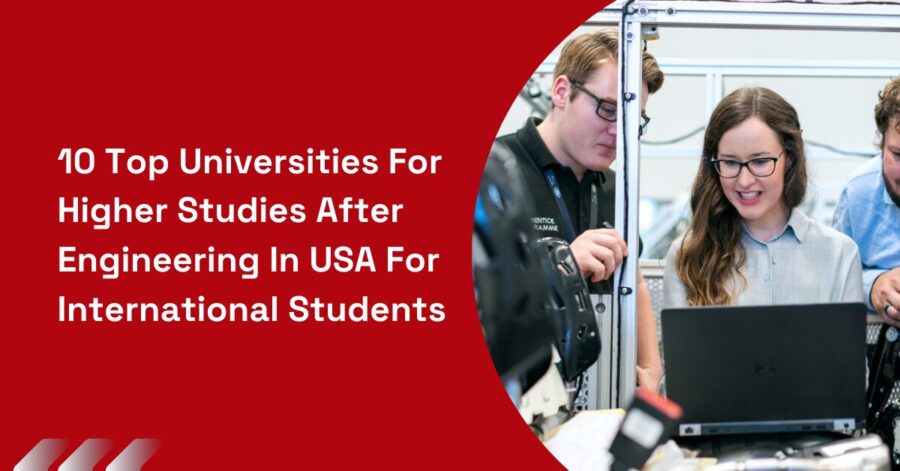
10 Top Universities For Higher Studies After Engineering In USA For International Students
Find your Dream school now⭐️
Welcome! Let's Land Your Dream Admit.
Let us make sure you get into the best!
- 2024 Winter
- 2024 Spring
- 2024 Summer
Enter verification code
Code was sent to
- Our Experts
Connect with us on our social media
Cookies on our website
We use some essential cookies to make this website work.
We'd like to set additional cookies to understand how you use our site so we can improve it for everyone. Also, we'd like to serve you some cookies set by other services to show you relevant content.
Management Integrated PhD
Key information.

- 1st in the UK for annual research income in 2019-2022 (Chartered Association of Business Schools)
- 8th in the UK for citations in Business and Economics (The Times Higher Education World University Rankings 2023)
- 16th in the UK for Economics & Business (NTU Ranking 2022)
You’ll work with world-leading faculty whose findings go beyond academia – to practitioners and professionals in industry, associations, chartered institutes, decision-making bodies and public-policy organisations.
You’ll become a skilled research practitioner with a broad set of advanced skills to help you address global challenges. Your training on this integrated PhD will enable you to effectively engage with – and shape – socioeconomic policies. This includes areas such as innovation, entrepreneurship, inclusive trade, minimum wage, education and development.
What is an integrated PhD?
An integrated PhD includes taking Masters-level modules in your first year as preparation for PhD-level research.
The taught year will help develop your research skills, ready for your PhD. It covers:
- quantitative, qualitative and analytical methods
- empirical design
- programming.
Through the taught modules, you’ll gain a meaningful progression point and all the support you need for your PhD. Once you’ve successfully completed the taught element of the degree, you’re ready to progress to the research phase of your PhD including your research thesis.
During your PhD, you’ll continue to receive training. You’ll develop more advanced research and publishing skills including:
- winning grants
- stakeholder engagement .
The integrated PhD offers the depth rigour and focus of a PhD, while developing your research and employability skills.
Accreditation
You’ll join the EQUIS and AMBA-accredited University of Sussex Business School. Learn more about all of our course accreditations here. Find out more

Areas of study
Our research focuses on questions such as:
- what factors influence new product/service development?
- how do institutional and geographical factors influence enterprise development?
- how do we tackle gender and race discrimination?
- how can we motivate individuals and nurture leaders?
- what could be done to promote environmental sustainability across supply-chain networks?
Find out more about research at the University of Sussex Business School
We understand that deciding where and what to study is a very important decision. We’ll make all reasonable efforts to provide you with the courses, services and facilities described in this prospectus. However, if we need to make material changes, for example due to government or regulatory requirements, or unanticipated staff changes, we’ll let you know as soon as possible.
PhD open evening on campus
Monday 21 October, 5pm - 8.30pm
Entry requirements
- UK requirements
- International requirements
Please select your country from the list.
Philippines
Saudi arabia, south africa, south korea, switzerland, united arab emirates, my country is not listed.
If your country is not listed, you need to contact us and find out the qualification level you should have for this course. Contact us
English language requirements
Ielts (academic).
High level (6.5 overall, including at least 6.0 in each component).
IELTS scores are valid for two years from the test date. You cannot combine scores from more than one sitting of the test. Your score must be valid when you begin your Sussex course. Find out more about IELTS
We accept IELTS One Skills Retake.
We do not accept IELTS Online.
Check full details of our English Language requirements and find out more about some of the alternative English language qualifications listed below
Alternative English language qualifications
Proficiency tests, cambridge advanced certificate in english (cae).
169 overall, including at least 162 in each skill.
We would normally expect the CAE test to have been taken within two years before the start of your course.
You cannot combine scores from more than one sitting of the test. Find out more about Cambridge English: Advanced
Cambridge Certificate of Proficiency in English (CPE)
We would normally expect the CPE test to have been taken within two years before the start of your course.
You cannot combine scores from more than one sitting of the test. Find out more about Cambridge English: Proficiency
LanguageCert Academic SELT
High level (70 overall, including at least 65 in each component).
LanguageCert Academic SELT scores are valid for two years from the test date. Your score must be valid when you begin your Sussex course. Find out more about LanguageCert Academic SELT
We only accept LanguageCert when taken at SELT Test Centres.
We do not accept the online version. We also do not accept the non-SELT version.
LanguageCert International ESOL SELT
High level (International ESOL SELT B2 with a minimum of 39 in each component)
LanguageCert International ESOL scores are valid for two years from the test date. Your score must be valid when you begin your Sussex course. Find out more about LanguageCert SELT
We only accept LanguageCert when taken at SELT Test Centres. We do not accept the online version.
Pearson PTE Academic
High level (62 overall, including at least 59 in all four skills)
PTE (Academic) scores are valid for two years from the test date. You cannot combine scores from more than one sitting of the test. Your score must be valid when you begin your Sussex course. Find out more about Pearson (PTE Academic)
We do not accept the PTE Academic Online test.
TOEFL (iBT)
High level 88 overall, including at least 20 Listening, 19 in Reading, 21 in Speaking, 23 in Writing.
TOEFL (iBT) scores are valid for two years from the test date. You cannot combine scores from more than one sitting of the test. Your score must be valid when you begin your Sussex course. Find out more about TOEFL (iBT)
We do not accept TOEFL (iBT) Home Edition.
The TOEFL Institution Code for the University of Sussex is 9166.
English language qualifications
As/a-level (gce).
Grade C or above in English Language.
Hong Kong Advanced Level Examination (HKALE)/ AS or A Level: grade C or above in Use of English.
GCE O-level
Grade C or above in English.
Brunei/Cambridge GCE O-level in English: grades 1-6.
Singapore/Cambridge GCE O-level in English: grades 1-6.
GCSE or IGCSE
Grade C or above in English as a First Language (Grade 4 or above in GCSE from 2017).
Grade B or above in English as a Second Language.
Ghana Senior Secondary School Certificate
If awarded before 1993: grades 1-6 in English language.
If awarded between 1993 and 2005: grades A-D in English language.
Hong Kong Diploma of Secondary Education (HKDSE)
Level 4, including at least 3 in each component in English Language.
Indian School Certificate (Standard XII)
The Indian School Certificate is accepted at the grades below when awarded by the following examination boards:
Central Board of Secondary Education (CBSE) – English Core only: 70%
Council for Indian School Certificate Examinations (CISCE) - English: 70%
International Baccalaureate Diploma (IB)
English A or English B at grade 5 or above.
Kenya Certificate of Secondary Education
Grades A - C in English language
Malaysian Certificate of Education (SPM) 1119/GCE O-level
If taken before the end of 2008: grades 1-6 in English Language.
If taken from 2009 onwards: grade C or above in English Language.
The qualification must be jointly awarded by the University of Cambridge Local Examinations Syndicate (UCLES).
West African Senior School Certificate
Grades A1-C6 (1-6) in English language when awarded by the West African Examinations Council (WAEC) or the National Examinations Council (NECO).
Country exceptions
Select to see the list of exempt english-speaking countries.
If you are a national of one of the countries below, or if you have recently completed a qualification equivalent to a UK Bachelors degree or higher in one of these countries, you will normally meet our English requirement. Note that qualifications obtained by distance learning or awarded by studying outside these countries cannot be accepted for English language purposes.
You will normally be expected to have completed the qualification within two years before starting your course at Sussex. If the qualification was obtained earlier than this, we would expect you to be able to demonstrate that you have maintained a good level of English, for example by living in an English-speaking country or working in an occupation that required you to use English regularly and to a high level.
Please note that this list is determined by the UK’s Home Office, not by the University of Sussex.
List of exempt countries:
- Antigua and Barbuda
- New Zealand
- St Kitts and Nevis
- St Vincent and the Grenadines
- The British Overseas Territories
- Trinidad and Tobago
- United Kingdom
** Canada: you must be a national of Canada; other nationals not on this list who have a degree from a Canadian institution will not normally be exempt from needing to provide evidence of English.
English language support
If you don’t meet the English language requirements for your degree, you may be able to take a pre-sessional course
- Visas and immigration
Admissions information for applicants
If your qualifications aren’t listed or you have a question about entry requirements, contact us
Core modules
Core modules are taken by all students on the course. They give you a solid grounding in your chosen subject and prepare you to explore the topics that interest you most.
Autumn teaching
- Analytical Methods and Research Design
- Qualitative Methods and Empirical Design
- Quantitative Methods and Research Design
Spring and summer teaching
- Research Proposal
Alongside your core modules, you take the pathway modules below.
- Introduction to Theory (for Innovation, Management and Policy Pathway)
Spring teaching
- Advanced Qualitative Methods (for Innovation, Management and Policy Pathway)
We regularly review our modules to incorporate student feedback, staff expertise, as well as the latest research and teaching methodology. We’re planning to run these modules in the academic year 2024/25. However, there may be changes to these modules in response to feedback, staff availability, student demand or updates to our curriculum. We’ll make sure to let you know of any material changes to modules at the earliest opportunity.
We’ll do our best to provide as much optional choice as we can, but timetabling constraints mean it may not be possible to take some module combinations. The structure of a small number of courses means that the order of modules or the streams you choose may determine whether modules are core or optional. This means that your core modules or options may differ from what’s shown here.
Check back in January 2025 for the modules running in the academic year 2025/26.
- How to apply
If you’d like to join us as a research student, there are two main routes:
- browse funded projects in this subject area
- browse our potential supervisors and propose your own research project.
Find out how to apply for a PhD at Sussex
Full-time and part-time study
Choose to work on your research full time or part time, to fit around your work and personal life. For details about part-time study, contact us at [email protected]
Our supervisors
Explore our research interests and find potential supervisors.

Prof Vasiliki Bamiatzi
Professor of Strategy and International Business
View profile of Vasiliki Bamiatzi

Prof Sambit Bhattacharyya
Professor of Economics
View profile of Sambit Bhattacharyya
Prof Chirantan Chatterjee
Professor of Development Economics, Innovation and Global Health
View profile of Chirantan Chatterjee
Prof Gonul Colak
Professor of Accounting and Finance
View profile of Gonul Colak

Dr Massimo Contrafatto
Reader in Accounting
View profile of Massimo Contrafatto

Prof Andrew Davies
RM Phillips Freeman Chair in InnovationManagement
View profile of Andrew Davies
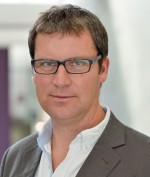
Prof Richard Dickens
View profile of Richard Dickens

Dr Pawel Dziewulski
Senior Lecturer in Economics
View profile of Pawel Dziewulski
Prof Catherine Liston-Heyes
Professor of Business and Government
View profile of Catherine Liston-Heyes
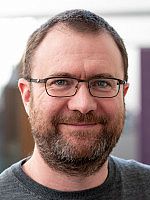
Dr George Mackerron
Senior Lecturer in The Economics of Environment, Energy & Climate Change
View profile of George Mackerron

Prof Stephan Manning
Professor of Strategy and Innovation
View profile of Stephan Manning

Dr Marianna Marra
Reader in International Business and Inn
View profile of Marianna Marra

Prof Constantin Blome
Visiting Professor
View profile of Constantin Blome
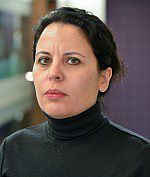
Prof Odul Bozkurt
Professor of Work and Employment
View profile of Odul Bozkurt

Dr Petros Chamakiotis
Visiting Senior Lecturer
View profile of Petros Chamakiotis

Dr Benjamin Everly
Senior Lecturer in Organisational Behaviour
View profile of Benjamin Everly
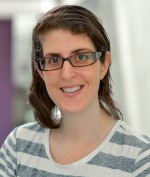
Dr Michelle Luke
Reader in Organisational Behaviour
View profile of Michelle Luke

Dr Monica Masucci
Senior Lecturer in Strategy and Entrepreneurship
View profile of Monica Masucci

Prof Steven McGuire
Associate Professor
View profile of Steven McGuire

Dr Piera Morlacchi
View profile of Piera Morlacchi

Prof Dimitra Petrakaki
Professor of Technology and Organisation
View profile of Dimitra Petrakaki

Dr Maria Restuccia
Senior Lecturer In Marketing
View profile of Maria Restuccia

Prof Martin Schleper
View profile of Martin Schleper

Prof Natalia Slutskaya
Professor in Work and Organisation Studies
View profile of Natalia Slutskaya

Prof Chris Storey
Professor of Marketing
View profile of Chris Storey

Prof Roger Strange
Professor of International Business
View profile of Roger Strange

Dr Shova Thapa Karki
Senior Lecturer in Entrepreneurship and Sustainability
View profile of Shova Thapa Karki

Prof Dennis Tourish
Professor of Leadership and Organisation Studies
View profile of Dennis Tourish

Prof Mirela Xheneti
Professor of Entrepreneurship and Small Business
View profile of Mirela Xheneti
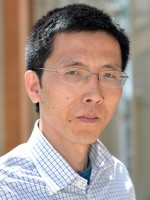
Dr Biao Yang
Senior Lecturer in Operations Management
View profile of Biao Yang
Funding and fees
How can i fund my course, funded projects and scholarships.
Our aim is to ensure that every student who wants to study with us is able to despite financial barriers, so that we continue to attract talented and unique individuals. Don’t miss out on scholarships – check the specific application deadlines for funding opportunities. Note that funded projects aren’t available for all our PhDs.
Up to 10 scholarships for outstanding PhD students from China
Find out more
Applying for USA Federal Student Aid?
If any part of your funding, at any time, is through USA federal Direct Loan funds, you will be registered on a separate version of this degree which does not include the possibility of distance learning which is prohibited under USA federal regulations. Find out more about American Student Loans and Federal Student Aid .
Part-time work
We advertise around 2,500 part-time jobs a year so you can make money and gain work experience. We have a special scheme to employ students on campus, wherever possible.
Find out more about careers and employability
How much does it cost?
Fees for self-funding students.
Home students: Fees are not yet set for entry in the academic year 2025/26. Fees will become available once set by United Kingdom Research and Innovation.
Channel Islands and Isle of Man students: Fees are not yet set for entry in the academic year 2025/26. Fees will become available once set by United Kingdom Research and Innovation.
International students: £22,575 per year for full-time students
Home PhD student fees are set at the level recommended by United Kingdom Research and Innovation (UKRI) annually, rising in line with inflation. Overseas fees are subject to an annual increase - see details on our tuition fees page
Additional costs
Note about additional costs.
Please note that all costs are best estimates based on current market values. Activities may be subject to unavoidable change in response to Government advice. We’ll let you know at the earliest opportunity. We review estimates every year and they may vary with inflation. Find out how to budget for student life .
Empirical research costs
On top of your PhD fees and living costs, you may also need to cover some research and training costs, relevant to your research project. These costs will depend on your research topic and training needs, but may include: - travel (to archives, collections or scientific facilities) - a laptop - overseas fieldwork costs (travel and accommodation, and language training) - conference costs (travel, registration fees and accommodation) - laboratory consumables and workshop materials - participant costs - transcription or translation costs - open-access publication costs. If you have a scholarship from one of the UK Research Councils, your scholarship should cover these types of costs. You'll receive details of how to claim this additional funding. If you're self funded, or if your scholarship doesn’t cover these costs, check with the Research and Enterprise Co-ordinator in your School for details of School or Doctoral School funding that may be available.
- Living costs
Find out typical living costs for studying at Sussex
Find out about our terms and conditions
Explore our campus
Experience Sussex life in our virtual tour.
Start your virtual tour
PhD Information Sessions
Visit campus and chat to staff and students. Book your place
Online PhD Sessions
Join a live webchat. Book your place
International
Meet us in your country
Course enquiries
+44 (0)1273 876787
Send us a message
Admissions enquiries
If you haven’t applied yet:
+44 (0)1273 678169 business-researchstudents@sussex.ac.uk
Find out about the University of Sussex Business School
After you’ve applied:
+44 (0)1273 877773 [email protected]
Find out how to apply
Quick links
- Guide to PhD study
- PhD support
- Academic facilities
- Open Days and events
- Accommodation
- International students
- Student life
- Order a printed prospectus
What do you want to do next?
- Courses Browse our courses by subject area
- Sussex Life Find out about life at Sussex
- Visit Come to a PhD Open Evening
- Apply Find out how to apply

IMAGES
VIDEO
COMMENTS
Both UKRI and CDT studentships are extremely competitive - most students will not have the full cost of their integrated PhD covered. UK students can apply for the UK government's doctoral loan (international students may also be eligible in certain circumstances). Integrated programmes are eligible for funding through the doctoral loan ...
Integrated PhDs provide a new model of postgraduate training. They retain the depth, rigour and focus of a conventional PhD while also providing a broader training experience. While the specific training routes may vary, they typically consist of a one-year Master's course (MSc or MRes) which leads straight into a three-year PhD.
An Integrated PhD is useful for students who have academic abilities but lack the necessary background to be considered for a standard-route PhD. This usually occurs under one of three scenarios: The applicant is currently an undergraduate student or only holds a Bachelor's degree,
Learn more about Northwestern University Feinberg School of Medicine Health Sciences Integrated PhD graduate research program (HSIP). ... Students in this PhD program have the opportunity to choose a study track: Health & Biomedical Informatics, Health Services & Outcomes Research, Healthcare Quality & Patient Safety and Social Sciences ...
Integrated PhD. The PhD with Integrated Studies is a hybrid degree allowing students to combine a classic PhD with taught preparation roughly equivalent to a taught MA, within a single four-year programme (eight years part-time). In Year 1, students will be registered as taught postgraduates. Like MA students, they will study five modules ...
The doctoral program in Health and Biomedical Informatics, within the Health Sciences Integrated PhD Program, allowed Lindsay to deepen her informatics and data science skillsets, while also allowing her to collaborate with other like-minded students, faculty, and investigators working in the healthcare and public health fields.
An Integrated PhD combines both taught study (in your first year) as well as independent research (during the PhD element of the course). An Integrated PhD should take longer to complete than a standard PhD (because it includes the Masters-level year). Integrated PhDs are designed for students who have not previously completed a Masters course ...
Integrated MS PhD programs prepare students for careers in academia, research institutes, industry, and other professional settings. Funding Opportunities for Integrated MS Ph.D. Programs. Funding is a crucial aspect to consider when pursuing an integrated MS Ph.D. program. Financing your education and research can be accomplished through ...
How students undertake our Integrated PhD program. Part 1: Master of Commerce Engage in rigorous coursework designed to equip you with the skills needed for independent research. Part 2: Phd Join a forward-thinking academic community and make your mark in solving global economic, environmental, and social challenges. ...
International students: £22,575 per year for full-time students. Home PhD student fees are set at the level recommended by United Kingdom Research and Innovation (UKRI) annually, rising in line with inflation. Overseas fees are subject to an annual increase - see details on our tuition fees page. Additional costs Note about additional costs